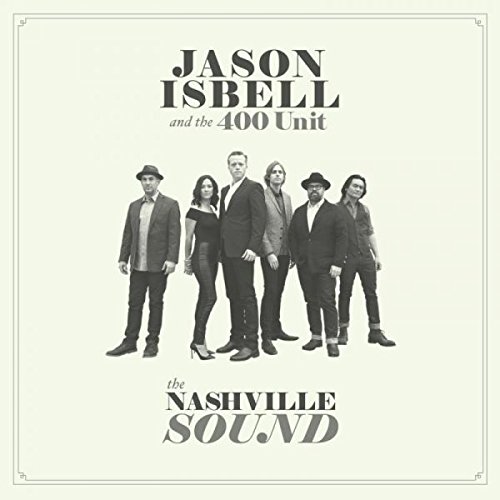Music Review: The Nashville Sound
Jason Isbell has been weaving in and out of public knowledge for the better part of two decades. Many got to know him as one of the several rotating members of southern rock holdovers, Drive-By Truckers, during the years between 2001 and 2007, but it wasn’t until his fifth solo record, Something More Than Free—for which he won two Grammys—that his name became ingrained in national consciousness. As is usually the case, it takes one song, a critically acclaimed album and/or a Grammy or two to find some kind of public validation in the world of music.
What I like about Isbell is his willingness to share the spotlight on the album immediately after his Grammy-winning solo record as he shores up his long-time band, the 400 Unit, which includes some spectacular musicians including his wife, Amanda Shires, who plays the violin in the band. The Nashville Sound furthers Isbell’s journey into the landscape of Americana and folk music. Many critics have already proclaimed that Isbell is creating his own sound, his own version of the genres in which he finds solace. I think elements of this are true, however, I doubt Isbell would make this proclamation for himself. He doesn’t seem that interested in reinventing the wheel, just setting it ablaze.
Where Something More Than Free found its groove in its emotionally affecting lyrical poetry—and the most emotionally devastating lyric of 2015, “you thought God was an architect, well now you know, He’s something like a pipe bomb ready to blow”—and musical rawness, The Nashville Sound reaches for a fuller sound, something more akin to Isbell’s work with bands in the past. Where Something More Than Free was perfect music to sob along to while driving down I-40 (true story!), The Nashville Sound seeks to seethe and rage against the scorching asphalt.
The topics addressed within the scope of the album range from intimate portraits of life to the injustices out there in the world that require protest and elicit rage. “Cumberland Gap” looks at the plight of poor folk as they find solace in the bottle or the military whenever the coal dries up and the town starts to blow away along with its people. “White Man’s World” addresses the blindness of white people in America today who refuse to listen to the protests and cries of those on the fringe of society. He fills the mic with righteous indignation as he sings:
“There’s no such thing as someone else’s war
Your creature comforts aren’t the only thing worth fighting for
If you’re still breathing, it’s not too late
We’re all carrying one big burden, sharing one fate”
One of the few quiet moments on the album is “If We Were Vampires,” which finds it’s emotional core in the acknowledgment that love between people only has meaning and heft whenever time on this planet is limited. Whereas “Anxiety”—a seven-minute epic—dives into the anxiety that we all feel that paralyzes and keeps us from enjoying what we have and those we love because of the fear that it will all come undone at any moment.
In many ways, this album feels like a natural response to the last year and all of the chaos, political insanity and death that keeps knocking at our door. Isbell is pissed that life is here, it’s precious and yet we can’t seem to enjoy it amidst the ruins of our country and our personal tragedies. However, lest ye be worried that this album finds no resolution or note of hope, I submit to you the song, “Hope the High Road” which fervently refuses to quit and angrily tells us to keep fighting and hoping even in all of the mess and the chaos. Isbell gives a gift to everyone who found “last year to be a son of a bitch” and doesn’t expect much better this year:
“I know you’re tired
And you ain’t sleeping well
Uninspired
And likely mad as hell
But wherever you are
I hope the high road leads you home again
To a world you want to live in”
With these words, Isbell gives a liturgy to the tired, the frustrated, the pain and the sorrows of our days, because he knows that hope always comes from the ashes, from the hard places, and from the seasons of despair. That philosophy is, in fact, what I think Isbell is calling “the Nashville sound” and it is new with every listen.







